Resources to help you take action at every step
Explore Robin Arzón's story, helpful downloads, and community organizations
Robin Arzón, athlete and T1D advocate, shares her journey
Robin Arzón is passionate about helping others be their own health champion. When Robin was diagnosed with autoimmune type 1 diabetes (T1D), it was too late for TZIELD to be an option. She decided to share her story with the hope that it will inspire others to take action.
Be a champion for your health—ask your doctor about screening
If you find out about T1D at the right time, you may have the power to do something about it. Talk to your doctor about screening for T1D today.
Downloadable resources
Doctor Discussion Guide
Need help speaking to your doctor about TZIELD? This useful guide can help start the conversation about treatment.
Patient Brochure
The Patient Brochure is a helpful resource for learning more about TZIELD and how it can help delay the onset of insulin-dependent (Stage 3) T1D.
Doctor Discussion Guide
Need help speaking to your doctor about TZIELD? This useful guide can help start the conversation about treatment.
Patient Brochure
The Patient Brochure is a helpful resource for learning more about TZIELD and how it can help delay the onset of insulin-dependent (Stage 3) T1D.
T1D organizations
You’re not alone. There is a world of support available to you in whatever form you need it, from online resources to in-person support groups. Below are a few helpful organizations to start exploring.
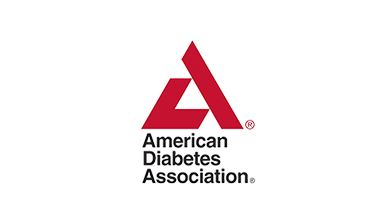
The American Diabetes Association is a network of more than half a million volunteers, people living with diabetes and their families, and healthcare professionals all united to improve the lives of people affected by diabetes.
These 3rd party links are provided for convenience and does not represent a recomendation or endorsement by Sanofi for the content on these websites
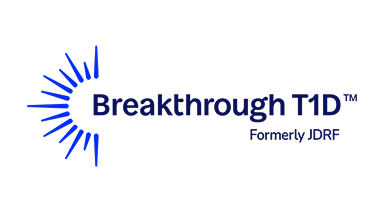
Breakthrough T1D is the leading global research organization funding type 1 diabetes research.
These 3rd party links are provided for convenience and does not represent a recomendation or endorsement by Sanofi for the content on these websites

Beyond Type 1 is a nonprofit organization changing what it means to live with diabetes.
These 3rd party links are provided for convenience and does not represent a recomendation or endorsement by Sanofi for the content on these websites
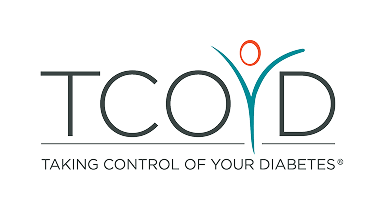
TCOYD is a nonprofit organization that provides educational live conferences and engaging digital programs for the diabetes community.
These 3rd party links are provided for convenience and does not represent a recomendation or endorsement by Sanofi for the content on these websites
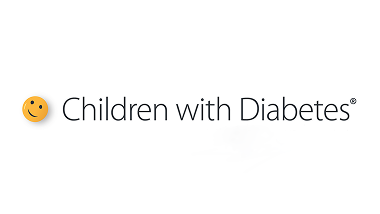
Children with Diabetes® provides education and support to families living with T1D through its website and its Friends for Life® conferences.
These 3rd party links are provided for convenience and does not represent a recomendation or endorsement by Sanofi for the content on these websites
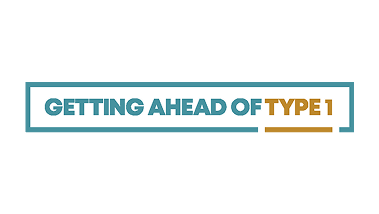
Getting Ahead of Type 1 is a collaborative effort focused on early detection and management of T1D through screening.
These 3rd party links are provided for convenience and does not represent a recomendation or endorsement by Sanofi for the content on these websites

The American Diabetes Association is a network of more than half a million volunteers, people living with diabetes and their families, and healthcare professionals all united to improve the lives of people affected by diabetes.

Breakthrough T1D is the leading global research organization funding type 1 diabetes research.

Beyond Type 1 is a nonprofit organization changing what it means to live with diabetes.

TCOYD is a nonprofit organization that provides educational live conferences and engaging digital programs for the diabetes community.

Children with Diabetes® provides education and support to families living with T1D through its website and its Friends for Life® conferences.

Getting Ahead of Type 1 is a collaborative effort focused on early detection and management of T1D through screening.
These 3rd party links are provided for convenience and does not represent a recomendation or endorsement by Sanofi for the content on these websites
Have more general questions about T1D, screening, or TZIELD?
You can start a chat or choose to leave a message for one our diabetes counselors to give you a call.
Get startedYour doctor is your best resource for specific questions you have about your health or treatments

Important Safety Information and Approved Use
What is the most important information I should know about TZIELD? TZIELD may cause serious side effects. These include:- Cytokine release syndrome (CRS). Signs and symptoms may start during the first 5 days of TZIELD treatment and could include fever, nausea, feeling tired (fatigue), headache, muscle and joint pain, or increased liver enzymes in your blood. Tell your healthcare provider right away if you develop any signs and symptoms of CRS during treatment with TZIELD
- Decrease in white blood cells. TZIELD may cause a decrease in a type of white blood cell called lymphocytes. A decrease in white blood cells is a serious, but common side effect that can affect your body’s ability to fight infections. A decrease in white blood cell counts can happen after your first dose. Your white blood cell counts will start to go back to normal after your fifth dose of TZIELD. Some people may develop longer and more severe decreases in lymphocytes
Your healthcare provider will do blood tests to check your liver and your complete blood counts before you start treatment and during treatment with TZIELD. During and after your treatment with TZIELD, your healthcare provider will check for serious side effects, as well as other side effects, and treat you as needed. Your healthcare provider may temporarily or completely stop your treatment with TZIELD, if you develop liver problems, have a serious infection, or if your blood counts stay too low.
What should I tell my healthcare provider before receiving TZIELD? Before or after receiving TZIELD, tell your healthcare provider about all your medical conditions, including if you:- have a serious infection or an infection that does not go away or keeps coming back
- have recently received or are scheduled to receive an immunization (vaccine). TZIELD may affect how well a vaccine works. Tell your doctor that you are receiving TZIELD before receiving a vaccine
- are pregnant or plan to become pregnant. TZIELD may harm your unborn baby. Do not receive TZIELD during pregnancy and at least 30 days before a planned pregnancy
- are breastfeeding or plan to breastfeed. It is not known if TZIELD passes into your breast milk and if it can harm your baby. Talk to your healthcare provider about the best way to feed your baby if you receive TZIELD
Tell your healthcare provider about all the medicines you take, including prescription and over-the-counter medicines, vitamins, and herbal supplements.
What are the possible side effects of TZIELD? The most common side effects of TZIELD include:- rash
- leukopenia (decrease in white blood cell counts)
- headache
These are not all of the possible side effects of TZIELD. Talk to your healthcare provider for more information, and tell them about any side effects you notice. You may report side effects to the FDA at www.fda.gov/medwatch or 1-800-FDA-1088.
Please see Medication Guide and Prescribing Information.
What is TZIELD?
TZIELD is a prescription medicine used to delay the onset of Stage 3 type 1 diabetes, which is when your body can’t make enough insulin on its own and may require insulin injections. TZIELD is for adults and children 8 years of age and older who have Stage 2 type 1 diabetes. This means that they have tested positive for 2 or more type 1 diabetes-related autoantibodies, have abnormal blood sugar levels, and do not have type 2 diabetes.
It is not known if TZIELD is safe and effective in children under 8 years of age.
Important Safety Information and Approved Use
- Cytokine release syndrome (CRS). Signs and symptoms may start during the first 5 days of TZIELD treatment and could include fever, nausea, feeling tired (fatigue), headache, muscle and joint pain, or increased liver enzymes in your blood. Tell your healthcare provider right away if you develop any signs and symptoms of CRS during treatment with TZIELD
- Decrease in white blood cells. TZIELD may cause a decrease in a type of white blood cell called lymphocytes. A decrease in white blood cells is a serious, but common side effect that can affect your body’s ability to fight infections. A decrease in white blood cell counts can happen after your first dose. Your white blood cell counts will start to go back to normal after your fifth dose of TZIELD. Some people may develop longer and more severe decreases in lymphocytes
Your healthcare provider will do blood tests to check your liver and your complete blood counts before you start treatment and during treatment with TZIELD. During and after your treatment with TZIELD, your healthcare provider will check for serious side effects, as well as other side effects, and treat you as needed. Your healthcare provider may temporarily or completely stop your treatment with TZIELD, if you develop liver problems, have a serious infection, or if your blood counts stay too low.
What should I tell my healthcare provider before receiving TZIELD? Before or after receiving TZIELD, tell your healthcare provider about all your medical conditions, including if you:- have a serious infection or an infection that does not go away or keeps coming back
- have recently received or are scheduled to receive an immunization (vaccine). TZIELD may affect how well a vaccine works. Tell your doctor that you are receiving TZIELD before receiving a vaccine
- are pregnant or plan to become pregnant. TZIELD may harm your unborn baby. Do not receive TZIELD during pregnancy and at least 30 days before a planned pregnancy
- are breastfeeding or plan to breastfeed. It is not known if TZIELD passes into your breast milk and if it can harm your baby. Talk to your healthcare provider about the best way to feed your baby if you receive TZIELD
Tell your healthcare provider about all the medicines you take, including prescription and over-the-counter medicines, vitamins, and herbal supplements.
What are the possible side effects of TZIELD? The most common side effects of TZIELD include:- rash
- leukopenia (decrease in white blood cell counts)
- headache
These are not all of the possible side effects of TZIELD. Talk to your healthcare provider for more information, and tell them about any side effects you notice. You may report side effects to the FDA at www.fda.gov/medwatch or 1-800-FDA-1088.
Please see Medication Guide and Prescribing Information.
What is TZIELD?
TZIELD is a prescription medicine used to delay the onset of Stage 3 type 1 diabetes, which is when your body can’t make enough insulin on its own and may require insulin injections. TZIELD is for adults and children 8 years of age and older who have Stage 2 type 1 diabetes. This means that they have tested positive for 2 or more type 1 diabetes-related autoantibodies, have abnormal blood sugar levels, and do not have type 2 diabetes.
It is not known if TZIELD is safe and effective in children under 8 years of age.